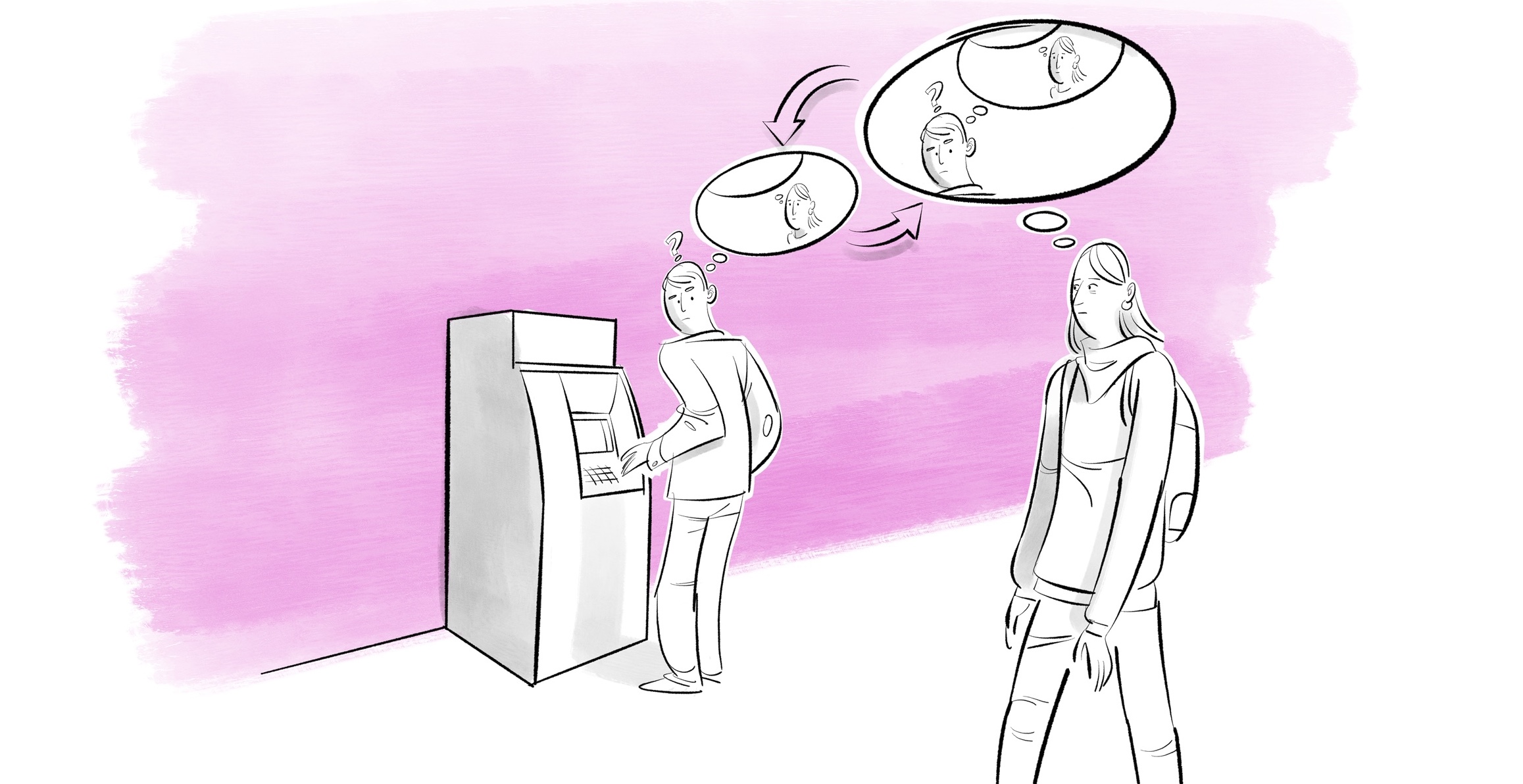Aesthetics of Performative Interaction for Pervasive Computing Environments in Public Spaces - AIPPS

Principal Investigators
Prof. Dr. Sarah Diefenbach, LMU Munich (Homepage)
Prof. Dr. Marc Hassenzahl, Universität Siegen (Homepage)
A central challenge within the design of pervasive computing environments (PCEs) is how to identify general characteristics that can be transferred across devices and domains but, at the same time, acknowledge contextual demands to provide a fulfilling user experience (UX). Our research project addresses this with a focus on the emerging “aesthetics of interaction”, i.e., interaction that “feels” good because it fits the current context and relevant psychological needs. We apply this approach in the reference scenario of public smart spaces, a scenario where sensible design with regard to experiential aspects and psychological needs seem especially relevant. While users perform and experience their own interaction, they may also think about how others perceive this interaction and the impression they make on others. Social acceptability, thus, seems crucially relevant for the experience and use of public interactive systems. In a set of systematic studies, we will identify psychological needs and specific requirements for positive experiences and interactions in public contexts. Based on this, we will design, prototype, and evaluate interaction concepts in concrete application scenarios (e.g., smart restaurant, airport, citizen’s registration office).
Main Research question
- How do we create positive experiences in PCEs or design technology interactions for public spaces in a way that fits the context?
Sub-Research Questions
- What is the role and perspective of “others” in public technology interactions? Are they present in UX research?
- How do contextual factors like the relationship to the present others shape the user experience in public spaces?
- What makes a positive technology interaction or experience for the present others?
- How to design for the impact of present others on the way users interact with technology?
- Do users desire expressivity or unobtrusive interaction? What about the “others”? What about interdependencies?
- How can multiple technology interactions be reconciled with each other for an overall positive experience for everyone involved?
PhD Students

Pia von Terzi
Ludwig-Maximillians Universität München

Alarith Uhde
University of Siegen
Publications
- Von Terzi, P., & Diefenbach, S. (2023, April). The Attendant Perspective: Present Others in Public Technology Interactions. In Proceedings of the 2023 CHI Conference on Human Factors in Computing Systems (pp. 1-18). https://doi.org/10.1145/3544548.3581231
- Tretter, S.; Diefenbach, S. (2022, September 10-15). Public Interaction with Innovative Technologies in Social vs. Non-social Settings: Differences in User Expectations regarding the Fulfilment of Psychological Needs [Poster Presentation]. 52nd Congress of the German Psychological Society, Hildesheim, Germany.
- Uhde, A., zum Hoff, T., & Hassenzahl, M. (2022). Obtrusive Subtleness and Why We Should Focus on Meaning, not Form, in Social Acceptability Studies. Proceedings of the 21st International Conference on Mobile and Ubiquitous Multimedia (MUM 2022), 11 pages. https://doi.org/10.1145/3568444.3568457
- Uhde, A., Mesenhöller, M., & Hassenzahl, M. (2022). Social Practice Cards: Research Material to Study Social Contexts as Interwoven Practice Constellations. Contribution to the CHI Workshop InContext: Futuring User-Experience Design Tools, 4 pages. https://doi.org/10.48550/arXiv.2205.01756
- Uhde, A., Tretter, S., Von Terzi, P., Koelle, M., Diefenbach, S., & Hassenzahl, M. (2021). Interaction in the Public: Aesthetics, Social Acceptability, and Social Context. Mensch und Computer 2021- Workshopband. https://doi.org/10.18420/muc2021-mci-ws13-123
- Uhde, A., & Hassenzahl, M. (2021). Towards a Better Understanding of Social Acceptability. Proceedings of the ACM CHI Conference on Human Factors in Computing Systems Extended Abstracts, 6 pages. https://doi.org/10.1145/3411763.3451649
- Uhde, A., & Hassenzahl, M. (2021). Simulating Social Acceptability With Agent-based Modeling. Contribution to the CHI Workshop on Emergent Interaction, 4 pages. doi: https://doi.org/10.48550/arXiv.2105.06730
- Von Terzi, P., Tretter, S., Uhde, A., Hassenzahl, M., & Diefenbach, S. (2021). Technology-Mediated Experiences and Social Context: Relevant Needs in Private Vs. Public Interaction and the Importance of Others for Positive Affect. Frontiers in Psychology, 12, 718315. https://doi.org/10.3389/fpsyg.2021.718315
- Von Terzi, P., Diefenbach, S. (2021, December 05-08). Technology and Publicness: The Attendant’s Perspective [Poster presentation]. 20th International Conference on Mobile and Ubiquitous Multimedia, Leuven, Belgium.
-
Uhde, A., Hoff, T.H., and Hassenzahl, M., (2023). Beyond Hiding and Revealing: Exploring Effects of Visibility and Form of Interaction on the Witness Experience. Proc. ACM Hum.-Comput. Interact. 7, MHCI, Article 200 (September 2023), 23 pages. https://doi.org/10.1145/3604247